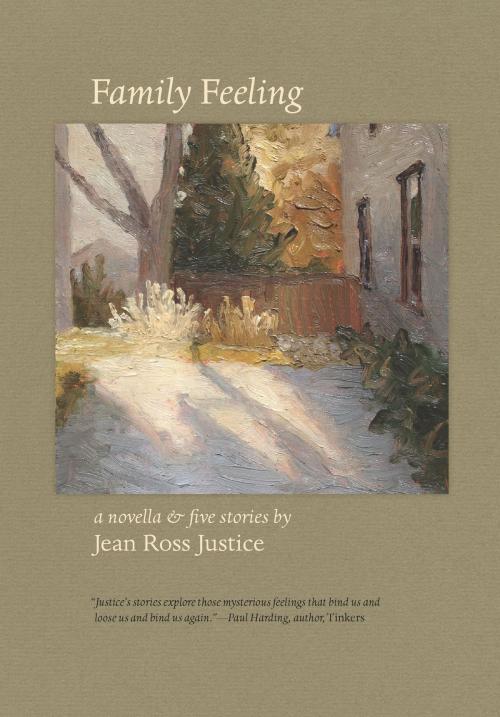| Author: | Jean Ross Justice | ISBN: | 9780985932565 |
| Publisher: | University of Iowa Press | Publication: | February 15, 2014 |
| Imprint: | Prairie Lights Books | Language: | English |
| Author: | Jean Ross Justice |
| ISBN: | 9780985932565 |
| Publisher: | University of Iowa Press |
| Publication: | February 15, 2014 |
| Imprint: | Prairie Lights Books |
| Language: | English |
Jean Ross Justice’s Family Feeling, a novella and collection of stories, is a moving portrait of American domestic life of the last half-century. Often spanning generations, the stories are defined by subtle shifts in both family relationships and the ways in which we reconfigure them in memory and mind.
Many of the stories revolve around end-of-life scenes. An elderly man is visited by his middle-aged son’s young second wife and child, whom the son has temporarily abandoned in order to tend to his dying ex-wife. A recently widowed woman faces a complicated relationship with a troubled home health-care worker who had been uncommonly kind to her dying husband. Four middle-aged siblings reconvene in their childhood home to attend to the death of their father and find themselves simultaneously children of, and parents to, their own parents.
The unobtrusive historical breadth of the stories is remarkable. Reflecting back to Depression-era southern America from the perspective of the early twenty-first century, the characters provide us with an intimate view of the changing cultural landscape of our country. Issues of class are not merely ideological here—they are fluid and intricate aspects of fate and of soul.
Justice’s prose is characterized by quiet humor and attention to gesture. The deeply self-reflective and self-contained narrators offer us a window into issues of aging and mortality that is real and rare. In the manner of Alice Munro or William Trevor, Jean Ross Justice’s thought-driven fiction centers on pivotal moments of action or conversation that haunt—or reverberate—for decades.
Jean Ross Justice’s Family Feeling, a novella and collection of stories, is a moving portrait of American domestic life of the last half-century. Often spanning generations, the stories are defined by subtle shifts in both family relationships and the ways in which we reconfigure them in memory and mind.
Many of the stories revolve around end-of-life scenes. An elderly man is visited by his middle-aged son’s young second wife and child, whom the son has temporarily abandoned in order to tend to his dying ex-wife. A recently widowed woman faces a complicated relationship with a troubled home health-care worker who had been uncommonly kind to her dying husband. Four middle-aged siblings reconvene in their childhood home to attend to the death of their father and find themselves simultaneously children of, and parents to, their own parents.
The unobtrusive historical breadth of the stories is remarkable. Reflecting back to Depression-era southern America from the perspective of the early twenty-first century, the characters provide us with an intimate view of the changing cultural landscape of our country. Issues of class are not merely ideological here—they are fluid and intricate aspects of fate and of soul.
Justice’s prose is characterized by quiet humor and attention to gesture. The deeply self-reflective and self-contained narrators offer us a window into issues of aging and mortality that is real and rare. In the manner of Alice Munro or William Trevor, Jean Ross Justice’s thought-driven fiction centers on pivotal moments of action or conversation that haunt—or reverberate—for decades.















